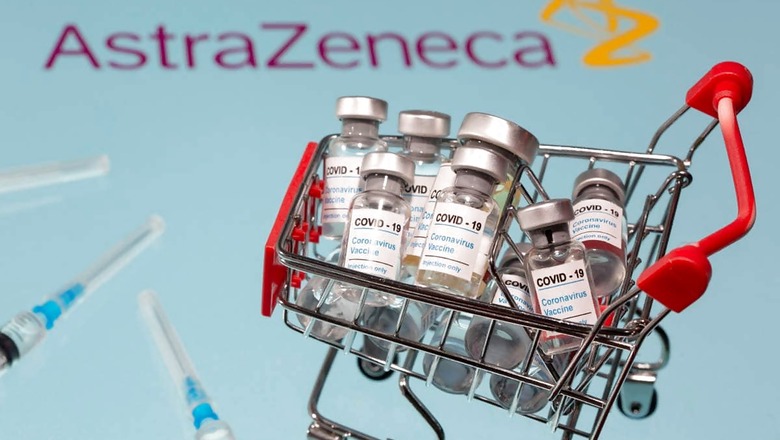
views
India on Friday took a step closer to licensing a vaccine against Covid-19 as an expert panel of the country’s drug regulator recommended that emergency use authorisation be granted to the Oxford-AstraZeneca vaccine.
The approval by the Subject Expert Committee of the Central Drugs Standard Control Organisation (CDSCO) paves the way for mass immunisation with the vaccine to begin within the next few days. The government wants to start administering the vaccine soon, most likely by Wednesday, news agency Reuters reported.
The SEC recommendation on Covishield has been forwarded to the Drugs Controller General of India (DCGI), which is likely to take a final call soon.
More than 5 crore doses of the AstraZeneca vaccine have already been stockpiled by its local manufacturer, Serum Institute of India (SII), and sources said the shots could start to be transported from cold storage to all states as early as Saturday, when a country-wide dry run of the vaccination programme will also be held.
India, which has the world’s second highest number of COVID-19 infections after the United States, plans to inoculate 30 crore people in the next six to eight months. The affordable Oxford vaccine is its biggest hope.
Though the Indian government has not yet signed a purchase agreement with the Serum Institute, the company says it will focus on its home market first, and then exports.
“For the Government of India, Covishield (Oxford vaccine) will cost about USD 3 per dose, so USD 6 [Rs 440] per person, but for the private market, it will cost around Rs 700-800,” Serum Institute of India CEO Adar Poonawalla said on Friday.
The SEC also considered Bharat Biotech’s vaccine Covaxin, official sources said, and the firm was told to expedite volunteer recruitment for the ongoing clinical trial. It was recommended that the company may conduct interim efficacy analysis for further consideration of restricted emergency use approval.
The emergency approval to the Oxford vaccine was granted after the expert panel reviewed the data submitted by Pune-based Serum Institute, the world’s largest vaccine manufacturer. UK and Argentina have already granted approvals to the Oxford vaccine.
While granting the restricted emergency use approval for the Oxford COVID-19 vaccine, the panel imposed certain regulatory provisions: the shot is indicated for active immunisation in individuals of 18 years or more and that it should be administered intramuscularly in two doses at an interval of 4 to 6 weeks.
According to interim data, the AstraZeneca/Oxford vaccine’s efficacy in preventing symptomatic infections was 70.4 per cent as 30 of 5,807 people who got the two-dose vaccine developed COVID-19, compared with 101 of 5,829 people who got a placebo.
That compares with the 95 per cent and 94.5 per cent efficacy of the two-shot vaccines from Pfizer/BioNTech and Moderna, the other vaccines approved in other countries.
However, the AstraZeneca shot is key to India’s plans of mass vaccination as it does not require deep freezing and can be kept in a standard refrigerator for six months. It is also cheaper to make, bringing hope to developing countries largely left out of the early vaccine haul.
SII had applied to the Drugs Controller General of India (DCGI) for EUA for Oxford COVID-19 vaccine on December 6, while the Hyderabad-based Bharat Biotech had sought the nod for its indigenously developed Covaxin on December 7.
Read all the Latest News, Breaking News and Coronavirus News here




















Comments
0 comment